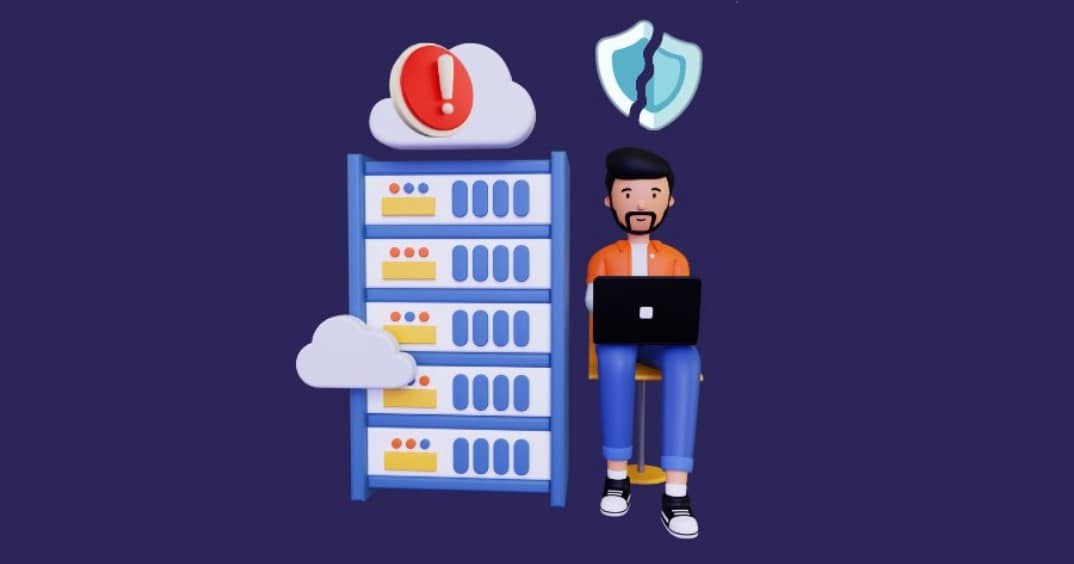
A proxy server is an intermediary server that retrieves data from an Internet source on behalf of a user. Read about how they work and their use cases.
A proxy server is used to allow a user to access Internet content without necessarily passing through a firewall. Depending on the user's needs, these servers can be used in different ways.
Public proxies are prone to lagging

VPNWelt claims that using a public proxy is not the best thing you can get online. Although the idea is noble, it can be dangerous to the unwary. For example, you can end up sharing your sensitive data with strangers at the coffee shop or, worse yet, the wrong crowd.
Luckily, there are options. The trick is to choose the right one. Some of the best options are the ones you can't find at the local Starbucks. Besides, there are a few reasons to avoid free or cheap proxies in the first place. Among these are your organization's security, data privacy, and the ever-elusive good ol' internet access. You can also use a proxy to make bot activity appear more human.
As expected, public proxies aren't the cheapest. But that doesn't mean they aren't worth your hard-earned bucks. A quality proxy provider will provide you with the aforementioned services, as well as a full suite of protection plans to keep you and your data safe.
Residential proxies are more reliable than data center proxies

Residential proxies are one of the most reliable proxy options available on the market. These proxies are based on real IP addresses from real residential locations. They can provide you with the security and anonymity that you are looking for.
There are two main types of proxy servers. One is the data center proxy, and the other is the residential proxy. Proxy service providers create both proxies. However, they have a few differences that may be a drawback for some.
The residential proxies have an advantage over the data center proxies. Although they are more expensive, they are far more reliable. You can count on them to deliver you high-quality data with no interruptions.
On the other hand, data centers are faster. But they are also less secure. In fact, they can be banned by websites. This is why many firms prefer residential proxies.
Forward proxies allow or deny a user's request to pass through the firewall to access content on the Internet
A forward proxy is a system that enables users to access the internet with a different IP address than their actual one. This makes them appear as if they are in a foreign country.
Forward proxies are similar to virtual private networks, but they provide a different level of security. By limiting users' access to certain sites and content, you can protect the privacy and personal information. You can also block malicious websites that may contain viruses and malware.
These proxies are important tools for balancing web traffic and protecting your organization from cyberattacks. They can also be used for encrypting data and caching information.
In addition, proxies can protect your identity by hiding your IP address. It's a good idea to read the terms of service before using a proxy to ensure you understand its limitations.
Rotating proxies are more secure than static proxies

Rotating proxies are used to change your IP address from time to time. These types of proxies help you maintain anonymity and security online. However, they require a little bit of setup.
While they can avoid the risk of being blocked, static proxies are more secure. They can be easily hacked and compromised. That's why it's best to go with a paid version of rotating proxies. You'll also get better support systems.
The main difference between static proxies and rotating proxies is their use of IPs. Static proxies use a single IP address for each user. This allows them to be used for long periods of time.
A rotating proxy rotates its IPs every few minutes. These IPs are chosen from a pool of residential and mobile IP addresses. Because the IPs are constantly changing, it's hard for a server defense to know where the request is coming from.
Reverse proxies offer the most security
Reverse proxies are a great way to improve your infrastructure and server security. They protect against malicious requests. They also add a layer of authentication. This means that they can protect against malware and SQL injection.
They can also act as load-balancing solutions. By distributing incoming traffic evenly across a set of servers, they increase performance and end-user experience. The reverse proxy acts as a failover solution when a server goes down.
A reverse proxy is a great option for organizations that have multiple applications. It simplifies access management, allowing administrators to implement rules on a server level. The traditional access control process requires an administrator to set up each server separately. This can lead to error-prone processes.
An advanced reverse proxy can also mitigate damage from malicious insiders. For example, it can validate incoming requests and block responses that contain sensitive information.






